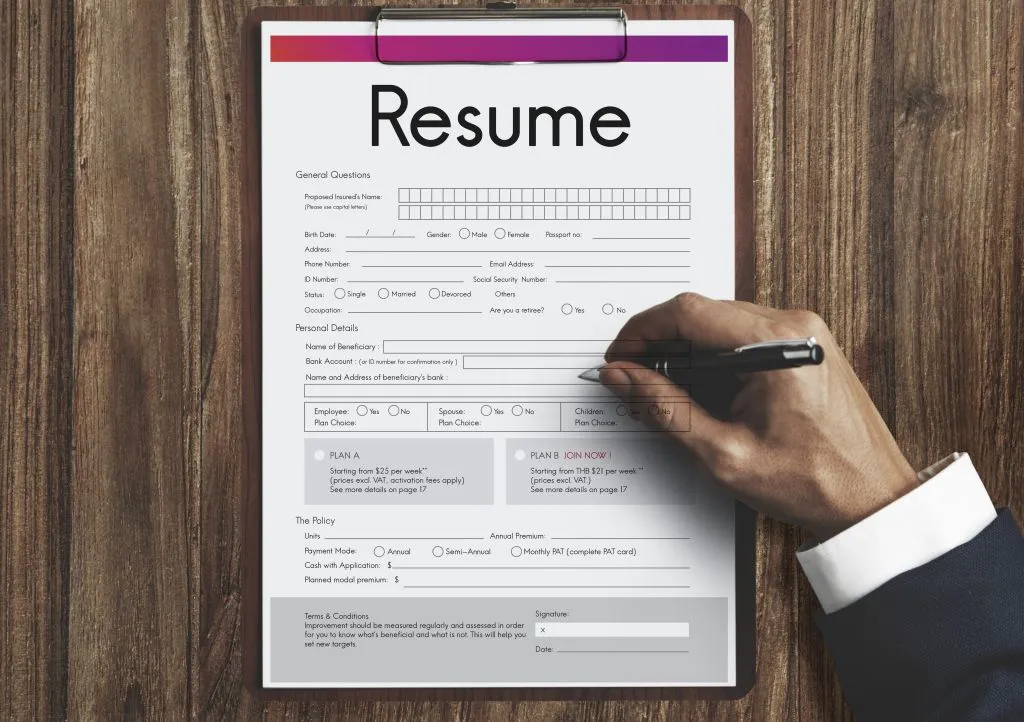Types of Resumes and Which One is Right for You
When it comes to job applications, your resume is your most important tool. However, not all resumes are created equal. Different job roles, career stages, and industries may require different resume formats. Knowing which type of resume to use can significantly increase your chances of landing an interview.
In this guide, we will break down the four main types of resumes and help you determine which one best suits your career goals and experience level.
Why Choosing the Right Resume Format Matters
Your resume format impacts how effectively your skills, achievements, and experience are presented to recruiters and hiring managers. Here’s why choosing the right format is crucial:
- Highlights Your Strengths: The right format focuses on what matters most—your experience, skills, or career progression.
- Passes ATS Screening: A clear and structured resume ensures compatibility with Applicant Tracking Systems (ATS).
- Impresses Recruiters: An organized, tailored resume creates a strong first impression.
- Tailors to Your Career Situation: Whether you’re a recent graduate, career changer, or experienced professional, the right format presents your story effectively.
The Four Main Types of Resumes
Each resume format has its advantages and is designed for different career situations. Below are the four main types:
- Chronological Resume
- Functional Resume
- Combination Resume
- Targeted Resume
We will dive into each type, explaining its purpose, structure, and when it’s best used.

The Chronological Resume
What is a Chronological Resume?
A chronological resume is the most common format and focuses on your work experience, listing your jobs in reverse chronological order (most recent job first).
Who Should Use It?
- Job seekers with a consistent work history.
- Professionals with progressive career growth.
- Applicants in traditional fields like finance, education, and law.
Structure of a Chronological Resume:
- Contact Information
- Professional Summary (optional)
- Work Experience (in reverse order, including job title, company, location, and dates)
- Education
- Skills
- Certifications or Awards (if applicable)
Pros:
- Highlights career progression and stability.
- Easy for recruiters to read and understand.
- Preferred by most employers and ATS.
Cons:
- Not ideal for those with employment gaps or frequent job changes.
- May not emphasize skills as strongly as other formats.
Example of a Chronological Resume:
Work Experience
Marketing Manager
XYZ Corporation | January 2020 – Present
- Led a team of 12 to launch campaigns that increased brand awareness by 40%.
- Implemented a content strategy that grew website traffic by 30% in one year.
Marketing Coordinator
ABC Inc. | June 2017 – December 2019
- Assisted in the execution of email marketing campaigns, achieving an open rate of 25%.
- Coordinated events that led to a 15% increase in lead generation.
The Functional Resume
What is a Functional Resume?
A functional resume emphasizes your skills and abilities rather than work experience. It focuses on what you can do rather than where or when you did it.
Who Should Use It?
- Job seekers with employment gaps.
- Career changers transitioning to a new industry.
- Recent graduates with limited work experience.
- Those with highly transferable skills.
Structure of a Functional Resume:
- Contact Information
- Professional Summary
- Skills and Competencies (highlighting specific abilities)
- Work Experience (brief, without emphasis on dates)
- Education
Pros:
- Draws attention to skills and achievements.
- Downplays gaps in employment or job-hopping.
- Useful for those with diverse work experience.
Cons:
- May be viewed skeptically by recruiters who prefer to see work history.
- Less effective for applicants with extensive, relevant experience.
Example of a Functional Resume:
Skills and Competencies
- Project Management: Successfully led cross-functional teams to deliver projects on time.
- Data Analysis: Analyzed customer behavior, increasing sales by 20%.
- Content Development: Created engaging blog posts and social media content that boosted engagement.
Work Experience
Various Contract Roles | 2019–2023
- Worked on short-term marketing campaigns for multiple companies, achieving project goals.
The Combination Resume
What is a Combination Resume?
A combination resume (also called a hybrid resume) blends the best aspects of chronological and functional resumes. It highlights both your skills and work experience.
Who Should Use It?
- Job seekers with strong skills and relevant work experience.
- Mid-level professionals looking to advance their careers.
- Career changers who want to emphasize transferable skills.
Structure of a Combination Resume:
- Contact Information
- Professional Summary
- Skills and Achievements
- Work Experience (in reverse chronological order)
- Education
Pros:
- Balances skills and work history.
- Highlights achievements and abilities.
- Flexible format suitable for various industries.
Cons:
- Can become lengthy if not structured carefully.
- Requires time to tailor effectively.
Example of a Combination Resume:
Professional Summary Experienced Digital Marketing Specialist with expertise in SEO, content creation, and data-driven strategy. Proven success in increasing traffic and revenue.
Key Skills
- Search Engine Optimization (SEO)
- Google Analytics
- Content Development
- Team Leadership
Work Experience
SEO Specialist
DEF Agency | March 2019 – Present
- Improved organic traffic by 50% through keyword optimization.
- Led a team of writers to produce high-quality, SEO-friendly content.
The Targeted Resume
What is a Targeted Resume?
A targeted resume is customized for a specific job. It focuses on matching your skills, experience, and achievements to the requirements outlined in a job description.
Who Should Use It?
- Job seekers applying for specific roles.
- Applicants looking to maximize their chances of landing interviews.
- Candidates with skills and achievements that align well with a job posting.
Structure of a Targeted Resume:
- Contact Information
- Professional Summary (tailored to the role)
- Skills (matching the job description)
- Work Experience (highlighting relevant accomplishments)
- Education
Pros:
- Increases the likelihood of passing ATS and grabbing recruiter attention.
- Demonstrates genuine interest and effort in applying for the role.
- Tailors your experience to the employer’s needs.
Cons:
- Requires time to customize for each application.
- Less effective if you’re applying for multiple roles quickly.
Example of a Targeted Resume:
Professional Summary Results-driven Sales Manager with 10+ years of experience driving revenue growth and building client relationships. Proven ability to exceed sales targets and deliver exceptional customer satisfaction.
Key Skills
- Client Relationship Management
- Sales Strategy Development
- CRM Tools (Salesforce, HubSpot)
Work Experience
Senior Sales Manager
XYZ Solutions | 2020–Present
- Increased regional sales by 35% through strategic account management.
- Developed client retention strategies, boosting customer satisfaction scores by 20%.
How to Choose the Right Resume Format
Choosing the right type of resume depends on your career situation. Ask yourself the following questions:
- Do you have a strong work history? Use a Chronological Resume.
- Are you changing careers or have employment gaps? Use a Functional Resume.
- Do you want to balance skills and experience? Use a Combination Resume.
- Are you applying for a specific job? Use a Targeted Resume.
By tailoring your resume format to your career needs, you can better showcase your value to potential employers.
Conclusion
Your resume format can make or break your job application. Whether you choose a chronological, functional, combination, or targeted resume, the key is to align your experience, skills, and achievements with the needs of the job.
At Jobsnips.com, we help job seekers create resumes that stand out in competitive job markets. Our experts can guide you in selecting the right format and crafting a resume that opens doors to your dream career.
SEO Meta-Title: Types of Resumes: Which One is Right for You? | Jobsnips
SEO Meta-Description: Learn about the four main types of resumes—chronological, functional, combination, and targeted—and find out which one best suits your career goals. Jobsnips.com offers expert tips to help you choose.

